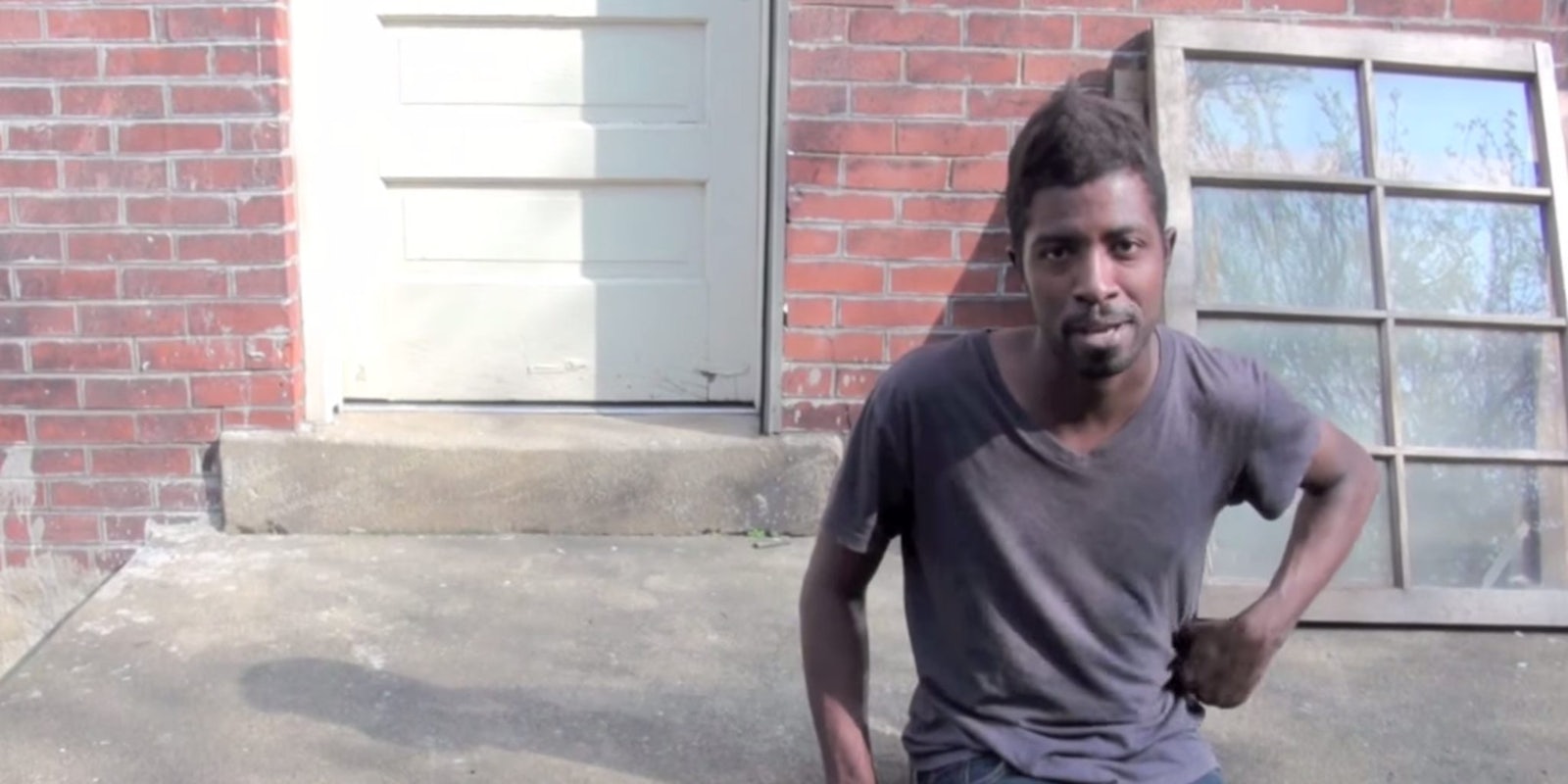The Internet is a virtual minefield of stolen jokes and lifted content. But one Twitter user has finally had enough, posting an open letter to two of Instagram’s biggest offenders.
On Sunday, a comedian named Davon Magwood posted an open letter addressing alleged content theft by Instagram personalities the Fat Jewish (real named Josh Ostrovsky) and Fuck Jerry (Elliot Tebele). He claims they both posted a recent tweet without attribution, though the latter allegedly posted it with the same grammatical error as Magwood.
Going to start dressing like a Lion. That way cops know that if they kill me. White people will avenge me pic.twitter.com/FIFfcJwOQH
— Davon (@davonmagwood) July 30, 2015
Silicon Valley star Kumail Nanjiani quickly pointed out the irony here.
Author Roxane Gay posted a similar tweet last week, and it’s likely many other people had the same thought in a time when people were seeking virtual justice for Cecil the lion. This happens on the Internet with topical issues. The point of contention here seems to be that Tebele lifted it wholesale, though it has since mysteriously disappeared from his Instagram.
Says Magwood:
If it’s my stuff you’re posting, and if you give me credit, then I get traffic to my site, maybe that traffic goes to my comedy album and then I get paid for my work! You make money from the traffic you generate and guess what, I’d also would like to be paid and credited for the traffic that I’ve generated. I shouldn’t have to asked to be credit for my work, neither should other comedians or clever social media people. You should assume that If I’m posting online that I want credit for whatever you share. Twitter has this neat thing called “ReTweet” where you share what I’ve tweeted or you can tag me in a post.
I’m not producing shit so you can make more money off of my work, no one is.
If you’ve spent enough time in certain corners of the Internet, you’ve likely come across the the the Fat Jewish’s or Fuck Jerry’s “content.” Ostrovsky’s Instagram page has more than 5 million followers, and it includes mostly screenshots of content, some with attribution. Same with Tebele’s. They both traffic in what could be called “When” humor.
Ostrovsky has been called the “king of Instagram” and interviewed by Katie Couric. Brands reportedly want to give him up to $2,500 to mention them on Instagram. He recently landed a modeling contract.
Over the past few years, Ostrovsky has also been called out for reappropriating content into his Instagram or Twitter feed. Last week, Death + Taxes went after Ostrovsky especially hard, editing his Wikipedia page to reflect his alleged serial theft.
Writing for the Washington Post, Luke O’Neil described Ostrovsky’s technique as “a sort of joke laundering that divests a piece of content from its source.” He also calls out Tebele, who employs a similar practice of cropping out a credit or rendering a piece of content untraceable from its true source. Tebele’s been lauded as a “BAMF” for his burgeoning, lucrative “brand,” which also makes him money. Here’s a telling passage from a recent interview with Cosmopolitan:
That’s because Tebele doesn’t mess with a formula that’s proven wildly successful: highly relatable, funny content that you can’t resist regramming or texting to your friends. Tebele is cagey about how exactly he finds his viral gems. “I go with my gut,” he says.
Yes, poorly cited or sourced content is everywhere online, from Twitter accounts to BuzzFeed lists. The very fluidity of the Internet has indeed allowed us to “remix everything” and label theft as “transformative,” leaving the original source of a video, photo, or quote several circles down this particular inferno. Just look at Reddit or Imgur. In this climate, it’s possible you’ve posted a photo or quote whose true source was unknown.
When confronted with plagiarism in the past, Ostrovsky claimed he just found it on a blog. When the Daily Dot reached out to Tebele about Magwood’s accusation, he echoed a similar refrain: “Never even heard of Davon Magwood, I find the post on a random meme Instagram.” (Ostrovsky did not respond to a request for comment.)
Taking down joke thieves on Twitter is sometimes successful. Recently, the company started letting users employ DMCA takedown requests for content they believe was lifted, but rectifying every claim of alleged copyright infringement on Twitter is a Sisyphean task, and accusing someone of stealing a joke isn’t as straightforward as it seems in the muddled waters of the Web. Last month, a San Diego-based comedy writer filed a lawsuit against Conan O’Brien for allegedly lifting his jokes for monologues, which shows both how seriously some people take this issue, and how difficult legal action can be against tweets, blogs, and intellectual property.
Which brings us back to Magwood, who, he says, is simply trying to pursue standup comedy and get some recognition, like countless people on Twitter. Comedians, if they want to reach more people, need to constantly be trying out jokes on social media as well as the stage.
It’s going to take a while for people like Ostrovsky and Tebele to be weeded out—based on the speed at which they “aggregate”—if that happens at all. Joke theft is bad, yes. But if you’re a comedian, you just need to keep telling jokes, make your set stronger, and remember some people lack a sense of humor of their own.
H/T Death + Taxes | Screengrab via Healthy Artists/YouTube



